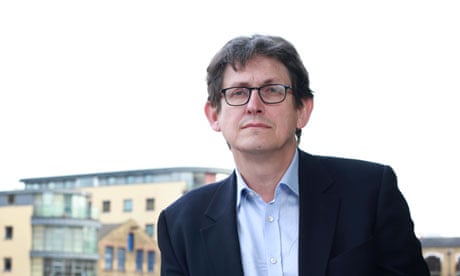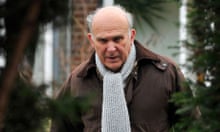The Guardian editor-in-chief, Alan Rusbridger, said today that the paper had opted to team up with the New York Times to publish its WikiLeaks revelations because it feared it would be prevented from publishing by the British courts if it attempted to do so alone.
Delivering the Anthony Sampson lecture at City University, on the subject of the long road to libel reform, Rusbridger highlighted the differing legal systems in the UK and US.
"The reason we decided to partner with the New York Times was a simple one. We suspected that, if we went it alone under the framework of laws governing newspapers in this country, we simply wouldn't be allowed to get away with it. We would be sued, or injuncted," he said.
"It seemed a good idea to harness the whole exercise to a country with extremely robust media laws rather than risk it all on the quicksands of the British legal system."
In the event, Rusbridger said Guardian was not sued over WikiLeaks, but added that he was "given some bloodcurdling learned opinions" on what might happen to the paper and him personally if it went ahead and published the US embassy cables.
Rusbridger delivered his speech, which is named after the anti-apartheid campaigner and South African journalist, in the wake of revelations posted on Twitter on Sunday about the alleged identity of public figures who have taken out high court injunctions to prevent stories being published about them in the press.
Rusbridger said the Twitter revelations showed that the law "is limping along behind the digital revolution".
The Twitter incident has prompted a fierce debate about the balance that should be struck between the media's right to report freely and individuals' right to privacy. The Conservative MP Zac Goldsmith earlier called for parliament to pass a privacy law, arguing that some newspapers could not distinguish between the public interest and "what is merely of prurient interest to the public".
Rusbridger said: "It is still comparatively easy to stifle the press, if only because fewer and fewer media organisations have the deep enough pockets to put up a fight." He added that London remained the "libel capital of the world – the place where the rich and dodgy flock to keep their reputations intact".
He criticised the use of injunctions and their more censorious successors, "super-injunctions", which prevent media organisations from reporting the fact they even exist.
But he also attacked the Press Complaints Commission, the industry regulator, claiming that its ineffective response to the phone-hacking scandal at the News of the World undermined newspapers' arguments that they should be left to police themselves.
"Phone hacking, and the inadequate response so far of the regulator, matter because they betray a certain journalistic mindset to privacy and because they undermine the story we tell Parliament and the public about why we should be trusted with self-regulation and with more permissive laws," Rusbridger said.
"How, MPs reasonably ask, can we as an industry argue that self-regulation works when it evidently failed quite spectacularly over phone hacking?"
Newspapers need a strong regulator if they are to avoid "statutory oversight", Rusbridger said.
He added that where there was a conflict between the right to privacy and the right to publish a story, it will fall to a third party – either a regulator or the judiciary – to make a judgement based on the facts of the case.
"If we want the majority of cases to be dealt with by self-regulation, then it's obvious that our regulatory mechanisms have to plausible," Rusbridger said. "A weak regulator does the press no favours at all because it can never be convincing either to parliament, or to people who are considering their options for remedies."
Rubsridger stopped short of expressing support for a privacy law, but said: "Some sort of consensus may now be developing that it mightn't be a bad idea … to trust parliament to discuss this."
He also welcome a draft libel bill, which will be debated by MPs this week, but said it did not go far enough.





